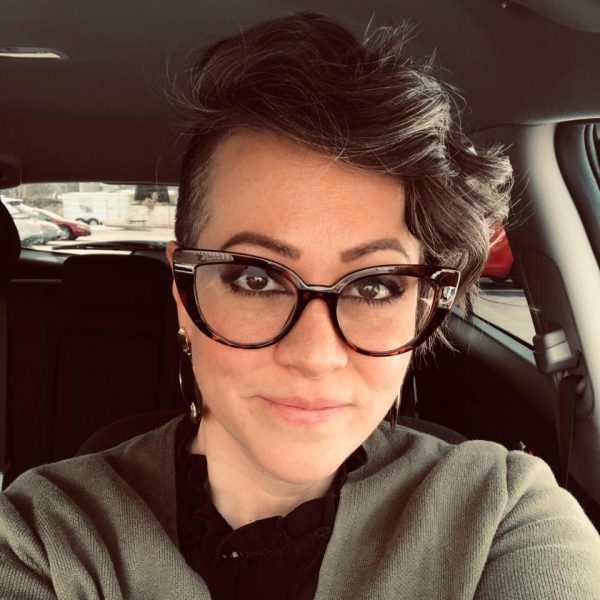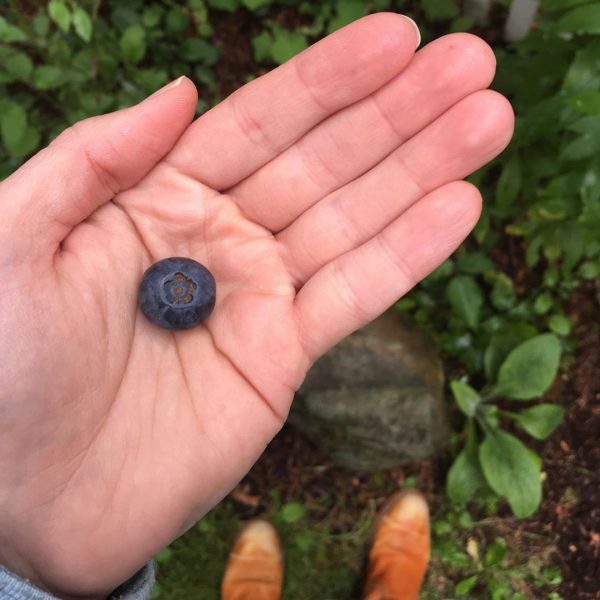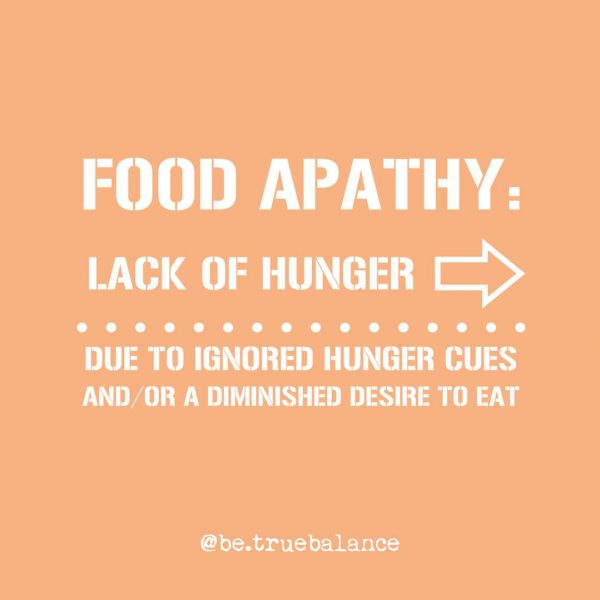Today’s guest is someone I’ve had the privilege of meeting briefly, and while I wish we had had more time to talk in person I’m glad I have social media so I can continue to learn from and admire her presence from afar! I am honored that Nicolle would feel comfortable sharing her food/body story with us and it is my hope that as you read you’ll find the hope YOU need in discovering more about yourself through her words.
. . .
Hi! My name is Nicolle Buchanan. Thanks Beth for giving me this opportunity to continue sharing my story. In sharing my story, I hope to inspire others and change the conversation about bodies. In fact, I would love if the conversation about bodies would cease. It is my desire to live in a world where the issue of what my body looks like becomes a non-issue; that I can move about, knowing that how my body is shaped is never a part of the conversation. One day, I have no doubt we will get there.
Disordered eating started for me at the tender age of 8. Although, I wouldn’t identify that I had a problem until 25 years later. I remember, clearly, sneaking food that I didn’t want my parents to know I was eating. By the 4th grade I knew I was bigger than all the other kids my age. The teasing started then. One night, a friend was staying over and we took turns weighing ourselves and I outweighed her by about ** pounds. And my weight continued to climb.
Around the age of 11, I was sitting on the toilet, looking at my stomach and the thought came to me that I must be pregnant. Whose stomach was that big without being pregnant? The only way I could have been pregnant was through immaculate conception, but still, I wondered.
All my life, I had been athletic. I played softball, basketball, volleyball, and three shot put and discus. But still I gained weight.
At 16 I was diagnosed with polycystic ovarian syndrome (PCOS) and told I would probably never have children. At the time, I didn’t realize how that affected me, but looking back I can see how the addiction and obsession with how my body looked spiraled. I had a religious class early in the mornings at 6:30 am, which I would attend, leave a little early and head to the local YMCA to swim. I had to do something to lose weight. I figured more physical activity would help the process. My eating was out of control though. I worked in so many restaurants as a teenager and would eat the food there every day.
By the age of 25, I weighed in at *** pounds. I had gone to an endocrinologist because my period was highly irregular. At that appointment, the doctor said some very traumatizing things to me. I vowed to never feel that way again. Shortly after that, the ‘Zone diet’ was introduced to me. I started doing it. It helped a little, but still not enough. Then ‘Southbeach diet’ came into my life. Again, it taught me some new things I hadn’t known before, but didn’t have the affect I hoped for. With both of these diets, I would rollercoaster up and down. I would make it down to *** and then back up to *** over and over again. However I could never break the *** mark, no matter how often I worked out or changed my diet.
Losing weight took on an extra measure of urgency, when my father had a massive heart attack that nearly killed him. The only reason he lived, was because he was already in the hospital when it hit. Shortly after that, he was also diagnosed with type II diabetes. His father died of a 2nd heart attack due to type I diabetes. My maternal grandfather also suffered 2 heart attacks and before he passed had type II diabetes. My maternal grandmother also had heart problems and type II diabetes later in life. The diagnosis of PCOS as a teenager already makes me more susceptible to diabetes. It is an insulin resistant state.
About that time, the HCG diet became very popular. My friend mentioned over and over that I should do it. I started to become very angry every time she would mention it to me. So I sat with that until I understood why I was getting angry. The answer was that I was TERRIFIED to not be able to eat. The HCG diet restricted you to 500 calories a day and that was frightening for me. At that moment I realized I had a problem.
I began attending a 12 step program for people with issues around food. It definitely helped me to work through some things. I also went on the plan they suggested. It required not eating any sugar or flour. I could eat whole sprouted grains, but nothing made from flour. And I changed up my workouts again. Lo and behold, I found myself below the *** mark! I had made it to ***. I was ecstatic!! This was the smallest I had been since 9th grade.
Within that same time frame, I met a man. He was everything I could have hoped for, except that he was an emotionally abusive narcissist and it took me a full 5 years to completely be done with him. The trauma from that relationship resulted in me gaining back about ** pounds and made me really sick.
Also during that time, I decided to return to college to finish my bachelor’s degree. I chose exercise science with an emphasis in fitness leadership and a minor in nutrition. I had an idea to create a program based off of my recovery process. I wanted to help people create health, physically, emotionally, and spiritually. I have been a massage therapist that specializes in Structural Integration for 18 years. The program I designed would include bodywork aimed at helping to release emotions stored in the body, nutrition guidelines, and a workbook. Two years later, and after being published in Huffington Post, I couldn’t get clients. Then God said, ‘I need you to let go of what this program looks like’. So I did.
That’s when the real teaching began for me. God started showing me the abuse I had put my body through for the last 2 decades. He showed me the beliefs I had about my body; beliefs that if I was skinnier, I would be worth more, I would be more lovable, I would be worth it, I would be prettier, I would be worth choosing as a companion, and someone would want to marry me. And so I stopped. I stopped trying to force my body to look a certain way. I stopped shaming myself for the way I looked. I decided to focus on loving myself exactly as I am. Have I lost all the weight because of that? No. But am I at peace? Absolutely.
My focus in on feeding my body foods that make her feel good. If I eat a food that makes my stomach hurts or bloat, I try to remove it. Am I perfect at it? Nope, absolutely not. Cause I really love French fries and pizza. They’re delicious. And they sometimes make my stomach hurt. I’ve removed ‘good’ and ‘bad’ labels from food. I don’t tell myself I can’t eat any food. I simply place my focus on the foods that make me feel alive and full of energy rather than weighed down and lethargic. I’ve changed my whole outlook on what a ‘healthy’ body looks like. And it’s my goal to help others remove food behaviors that are potentially toxic for them, whatever that may be. It took me a long time to be able to say this but now I can. Even at over *** lbs still, I love me! I love my body! And I love you exactly the way you are right now too.





